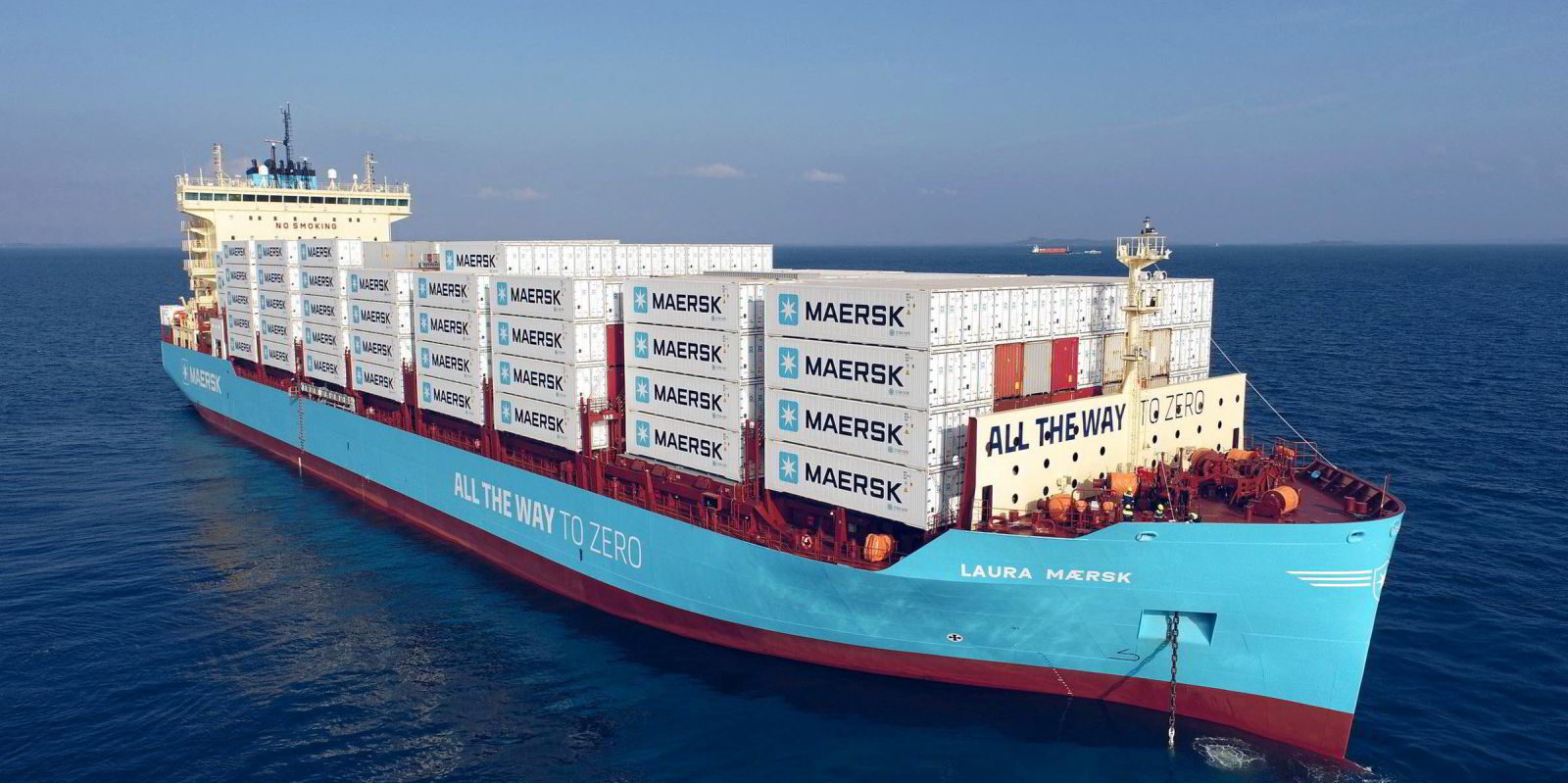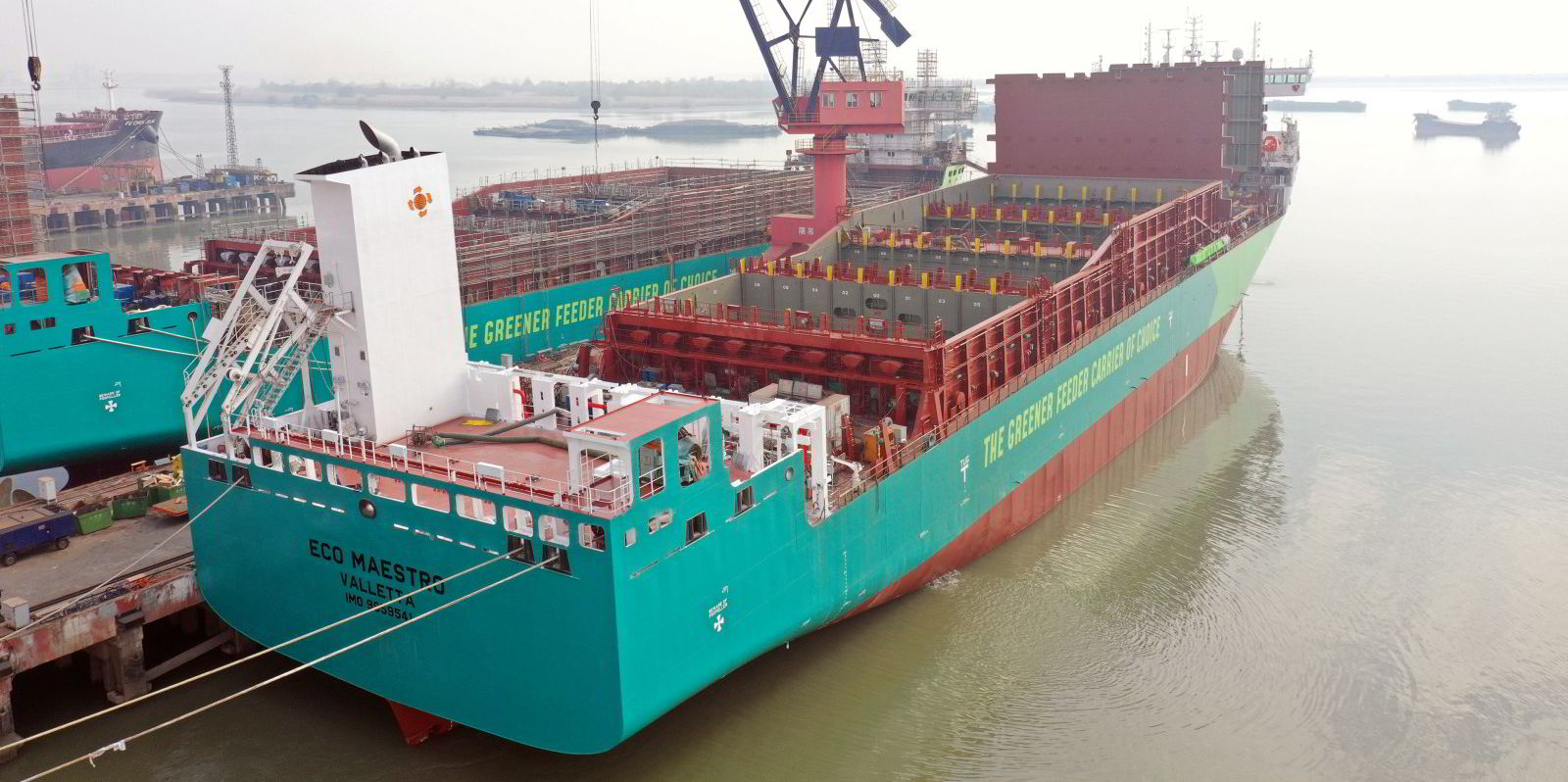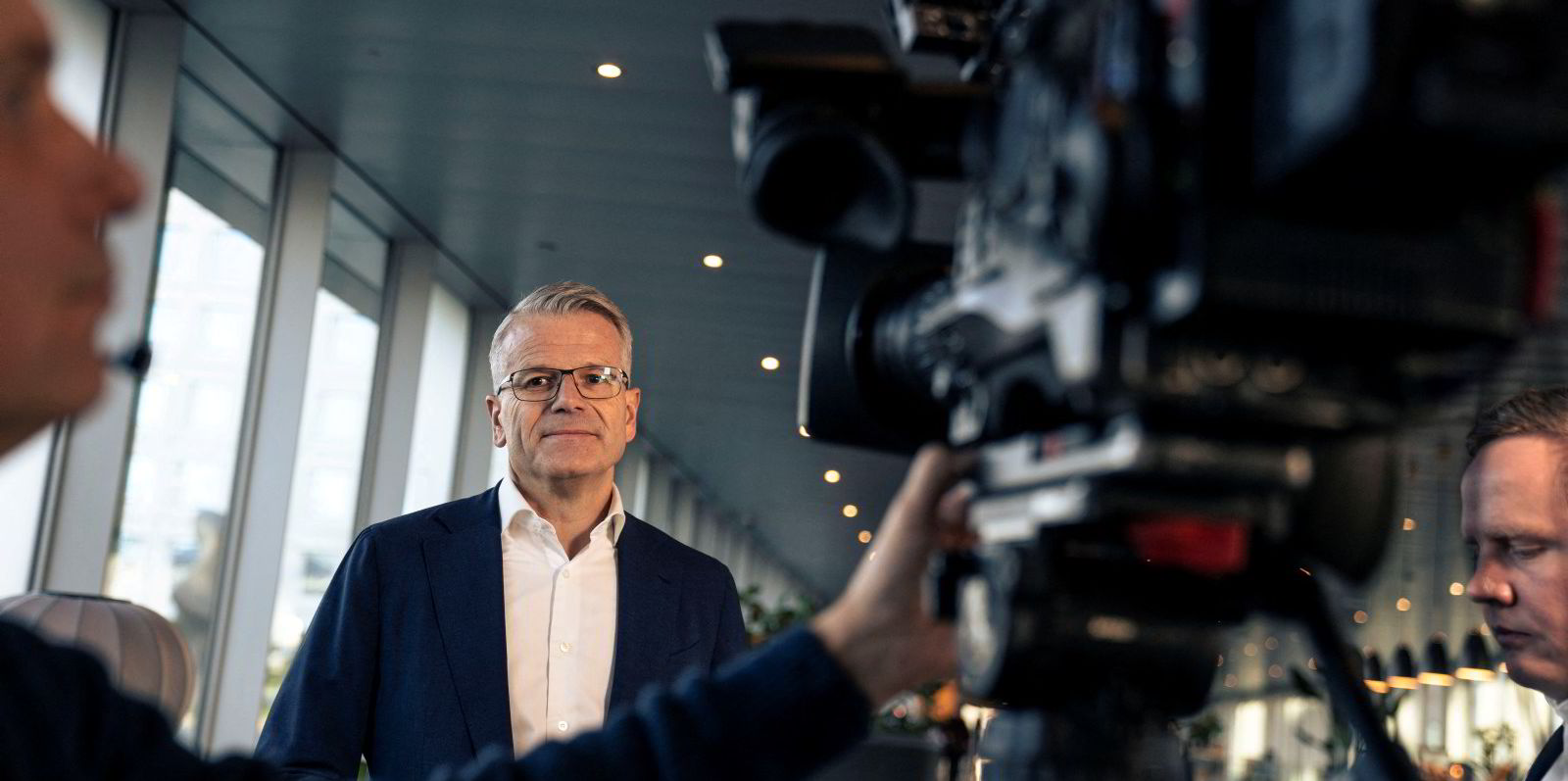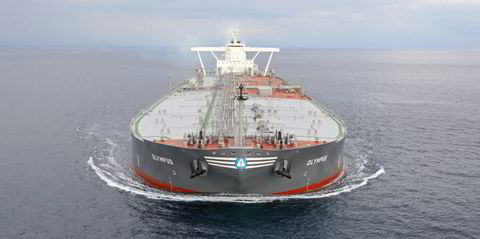The heads of a dozen of the world’s leading liner giants have thrown their weight behind a new proposal for greenhouse gas pricing.
They argue that the carbon pricing policy proposed by the container shipping sector will close the gap between fossil and green marine fuels at the lowest possible cost.
“This is a rifle shot to say we want to make sure there’s enough money to bridge that price gap between fossil fuels and green fuels,” John Butler, chief executive of the World Shipping Council, told a press conference today.
“But we don’t want to over-collect to where we’re simply putting cost burden on the transportation system.”
The WSC believes its carbon pricing scheme would be less costly than rival schemes under consideration by the International Maritime Organization.
“The key point that we make in the balancing concept is that we make sure it’s no more expensive than it needs to be. It’s only as expensive as the cost of the fuel,” said Ocean Network Express chief executive Jeremy Nixon.
“Overall, the container shipping is taking a leading approach. We don’t see this as a competitive issue.”
He argues that the liner sector has good reason for taking a leading role, with more than 200 dual-fuel vessels in operation.
Under the WSC’s proposed Green Balance Mechanism, ships would be charged a fee according to their green fuel efficiency.
Payment is made into a central fund administered by the IMO.
That would mark a “pragmatic step towards sustainable shipping”, said Hapag-Lloyd chief executive Rolf Habben Jansen.
Key role of IMO
Liner giants MSC Mediterranean Shipping Company, AP Moller-Maersk and CMA CGM are also backing the proposal.
The WSC submitted a paper for consideration to the IMO in January ahead of the next Marine Environment Protection Committee, MEPC 81, in mid-March.
“As a next step, we need to act collectively and to promote a level playing field at the global level for our industry,” said CMA CGM chairman Rodolphe Saade.
IMO member states should take decisive action that rewards early adopters by compensating truly green vessels corresponding with their emission reductions, said Maersk chief executive Vincent Clerc.
“This approach is critical for accelerating the retirement of fossil-fuelled vessels,” he said.
MSC boss Soren Toft said the IMO “should not miss the opportunity of directly closing the gap on green fuel costs and supporting further technology development and deployment, both to advance shipping’s decarbonisation”.
The scheme is supported by leading liner operator players in Asia, including Cosco-affiliated Orient Overseas Container Line.

But the IMO has to play “a leading role in introducing effective mechanisms to accelerate investments in zero or near-zero emission ships”, according to NYK Line president Takaya Soga.
Evergreen chief executive KH Wu said: “Collective action is vital for the liner shipping industry in striving toward decarbonisation.
“It is essential to have a new approach to greenhouse gas pricing that would drive demand for cleaner fuels from the start of the transition. We need the support of authorities, vendors and customers. Together, we can decarbonise.”
The WSC’s proposal would “accelerate the industry’s broader transition to carbon neutrality”, HMM chief executive Kyung-bae Kim said.
Immediate benefit
Liner operators argue that the Green Balance Mechanism will allow existing dual-fuel ships to operate on clean fuels rather than wait years to be economically viable.
That is seen as beneficial to those operators that have committed to boxships capable of using green methanol.
The mechanism would enable Wallenius Wilhelmsen to use green methanol and “to achieve the deepest possible emissions reductions from day one”, said CEO Lasse Kristoffersen.
The scheme would bridge the significant financial gap between green fuels and conventional fuels with a minimal impact on the industry, added X-Press Feeders boss Shmuel Yoskovitz.
“The mechanism proposed by WSC helps level the playing field for the green fuel users without overburdening the cost for the conventional fuel users,” he said.
Swire Shipping chief executive Jeremy Sutton said: “United with our fellow liner carriers, we urge for pragmatic global regulations that incentivise investment in both clean fuel production and the development of next-generation ships.”






